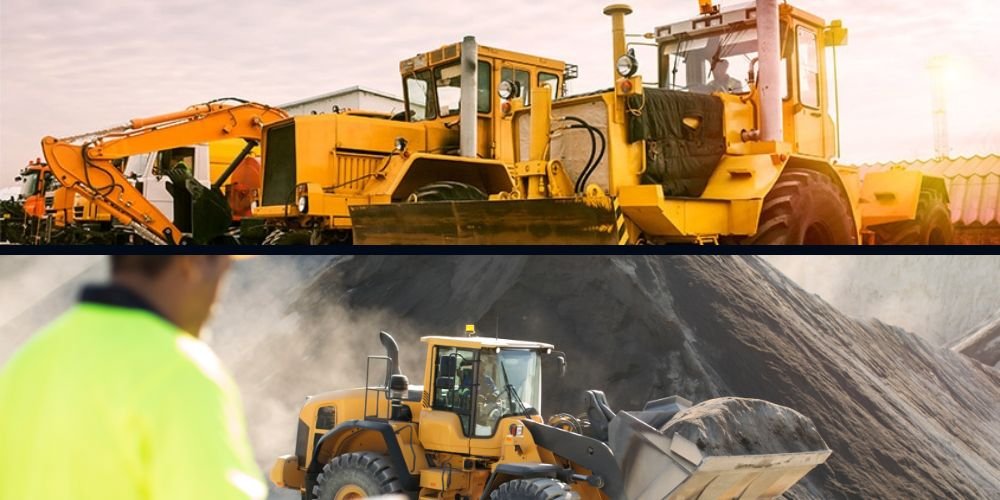Construction fleet management is crucial in optimizing construction operations and ensuring the efficient utilization of vehicles and equipment throughout project lifecycles. This article explores the fundamentals, benefits, and best practices of construction fleet management, highlighting its significance in enhancing productivity, reducing costs, and improving project outcomes.
Understanding Construction Fleet Management
Construction fleet management involves supervising, coordinating, and optimizing the use of vehicles, machinery, and equipment on construction projects. Maximizing fleet efficiency and performance encompasses activities such as fleet tracking, maintenance scheduling, fuel management, and driver safety.
Fleet Tracking and Monitoring
Fleet tracking systems utilize GPS technology to monitor the real-time location, speed, and status of construction vehicles and equipment. By tracking fleet movements and activities, construction managers can optimize routing, minimize idle time, and improve overall fleet productivity, thereby enhancing project efficiency and reducing costs.
Preventive Maintenance Scheduling
Preventive maintenance scheduling is essential for ensuring the reliability and longevity of construction fleet assets. By implementing regular maintenance schedules based on equipment usage and manufacturer recommendations, construction managers can minimize downtime, prevent costly breakdowns, and extend the lifespan of vehicles and machinery, ultimately reducing maintenance costs and enhancing fleet performance.
Fuel Management and Efficiency
Effective fuel management is critical for controlling operating costs and reducing environmental impact in construction fleet operations. Fleet managers can implement fuel monitoring systems, driver training programs, and fuel-efficient driving practices to optimize fuel consumption, reduce waste, and lower overall fuel expenses, thereby advancing sustainable fleet management and environmental stewardship.
Advantages of Construction Fleet Management
Construction fleet management offers a range of benefits to construction companies, including improved asset utilization, reduced downtime, and enhanced operational visibility.
Optimized Asset Utilization
By effectively managing fleet assets, construction companies can optimize asset utilization rates and maximize the productivity of vehicles and equipment. Through strategic planning, scheduling, and deployment of fleet resources, construction managers can ensure that assets are utilized efficiently, minimizing idle time and improving project timelines and profitability.
Reduced Downtime and Maintenance Costs
Proactive maintenance scheduling and preventive maintenance practices help minimize unplanned downtime and reduce maintenance costs associated with equipment breakdowns and repairs. By conducting regular inspections, promptly addressing maintenance issues, and adhering to maintenance schedules, construction companies can enhance equipment reliability, prolong asset lifespans, and minimize costly disruptions to project schedules.
Enhanced Operational Visibility and Control
Construction fleet management systems provide real-time visibility and control over fleet operations, allowing managers to monitor vehicle performance, track asset locations, and analyze operational data. By leveraging data analytics and reporting tools, construction companies can gain insights into fleet utilization patterns, identify inefficiencies, and make data-driven decisions to optimize fleet performance and streamline operations.
Applications of Construction Fleet Management
Construction fleet management solutions find diverse applications across various construction activities, including transportation, material handling, and equipment maintenance.
Transportation Logistics and Planning
In transportation logistics, construction fleet management systems enable efficient route planning, vehicle dispatching, and cargo tracking, ensuring the timely delivery of materials and equipment to job sites. By optimizing transportation workflows and minimizing transit times, construction companies can improve project scheduling, reduce delivery costs, and enhance overall project efficiency.
Material Handling and Equipment Operations
Construction fleet management extends to material handling and equipment operations, where the efficient use of vehicles and machinery is critical to project success. Construction managers can optimize material handling processes, minimize idle time, and improve construction productivity by coordinating equipment movements, scheduling equipment rentals, and monitoring equipment usage.
Maintenance and Service Management
Maintenance and service management are integral components of construction fleet management, ensuring the reliability and safety of fleet assets. Construction companies can utilize maintenance tracking systems, service reminders, and equipment diagnostics to schedule routine maintenance tasks, track service history, and proactively address equipment issues, minimizing downtime and maximizing fleet availability.
Future Trends in Construction Fleet Management
The future of construction fleet management is marked by advancements in technology, telematics, and automation, alongside a growing focus on sustainability and efficiency.
Telematics and IoT Integration
Integrating telematics and Internet of Things (IoT) technology enables construction companies to collect and analyze real-time data from fleet assets, equipment sensors, and environmental conditions. By harnessing telematics data, construction managers can optimize fleet operations, improve asset performance, and enhance decision-making processes, driving greater efficiency and productivity in construction projects.
Autonomous Fleet Operations
Advancements in autonomous vehicle technology are poised to transform construction fleet operations with the emergence of autonomous vehicles for material transport, site grading, and equipment maintenance. By deploying autonomous fleets, construction companies can improve safety, efficiency, and productivity on job sites while reducing labor costs and reliance on human operators.
Sustainable Fleet Practices
Sustainability is becoming increasingly important in construction fleet management. Construction companies are adopting eco-friendly practices and alternative fuel technologies to reduce carbon emissions and environmental impact. By investing in electric vehicles, hybrid equipment, and renewable energy solutions, construction companies can minimize their carbon footprint, comply with regulatory requirements, and demonstrate environmental leadership.
Conclusion
Construction fleet management is pivotal in optimizing construction operations, enhancing productivity, and reducing costs throughout the project lifecycle. By leveraging fleet tracking, preventive maintenance, and fuel management strategies, construction companies can maximize asset utilization, minimize downtime, and improve operational visibility, ultimately delivering more efficient, successful construction projects. As technology and industry practices evolve, construction fleet management will continue to play a central role in driving innovation, sustainability, and efficiency.





